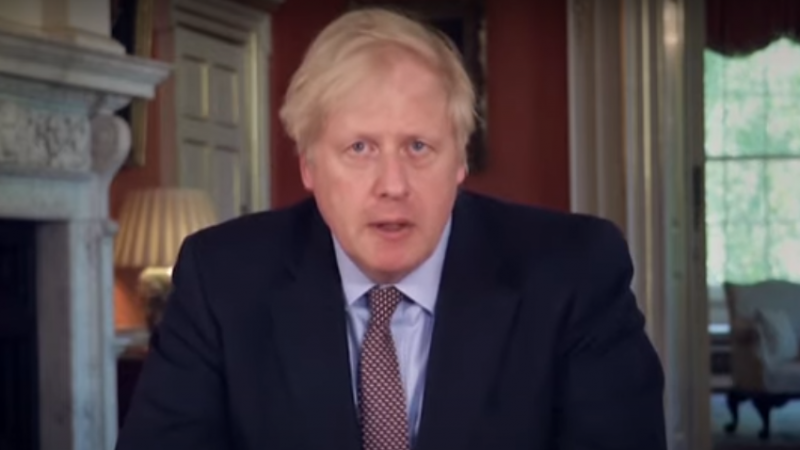Professor Prem Sikka looks at the government's latest power grab

The UK is on the road to an elected dictatorship. Crucial powers are being centralised in the hands of ministers and parliament is being weakened.
In functioning democracies, only parliament can dissolve itself, but that is set to change with the “Dissolution and Calling of Parliament Bill”. It gives the Prime Minister the unfettered power to dissolve parliament without a vote in the House of Commons and “court or tribunal may not question” the Prime Minister’s decision. The power to dissolve parliament was at the heart of the English civil war, which resulted in the execution of King Charles I in 1649.
How did the UK get to this position? Many countries (for example, the USA) have fixed-term parliaments and these are dissolved at a pre-set date to pave the way for a general election. In 2011, the UK enacted the Fixed-term Parliaments Act (FTPA) and it set a five-year interval between general elections. An early general election could still be called if two-thirds of the members of the House of Commons voted for such a motion.
A change of government and an election could also be called by other means. For example, if the Prime Minister loses a vote of ‘no confidence’ then s/he steps down, as happened with Labour’s James Callaghan in 1979. Under such circumstances, the largest party, or any other party, may try to form a government. If that fails, the House of Commons dissolves itself and a general election is called to resolve the deadlock.
Prime Ministers can resign but that need not lead to dissolution of parliament. For example, the Conservative victory in the 1987 election returned Margaret Thatcher to office for the next five years. However, she resigned mid-term in 1990 and was replaced by John Major for the remainder of the parliamentary term. That pattern was repeated in 2016 when David Cameron was replaced by Theresa May and in July 2019, Mrs May was replaced by Boris Johnson. In neither case was parliament dissolved as the incoming Prime Minister could form a government.
The FTPA 2011 became problematical as parliament deadlocked over Brexit. A number of attempts were made to dissolve parliament and call an election. A simple majority could be secured but a two-thirds majority (see above) remained elusive. Prime Minister Boris Johnson prorogued parliament but the Supreme Court judged the prorogation to be unlawful. Eventually, the Early Parliamentary General Election Act 2019 overrode the FTPA and by a simple majority the House of Commons dissolved itself.
The Conservative Party manifesto for the 2019 election pledged to repeal the FTPA. The “Dissolution and Calling of Parliament Bill” does that. It was assumed that the status-quo ante would return – i.e. the House of Commons would vote by a simple majority on any future dissolution. This power which now being taken by the Prime Minister.
In practice, parliament is dissolved by the Sovereign, who is the head of the state, upon advice from the Prime Minister who in turn is authorised by the Commons. But under the Bill, Prime Minister will not need approval from the Commons. Thus, the Queen may be accused of dissolving parliament whilst elected representatives of the people argue otherwise. Or s/he could reject the advice of the Prime Minister. Either scenario raises possibilities of a constitutional crisis.
The parliament makes life and death decisions by a simple majority, but will be denied the power to dissolve parliament and call a general election. The Prime Minister’s power to dissolve parliament is open to abuse and we already have a glimpse of that. Following revelations of multi-person parties at Prime Minister’s residence/office during the Covid lockdown period, Prime Minister Boris Johnson is under pressure from MPs from his own political party to resign. Many of these are in marginal constituencies and are concerned to retain their seats. The response from Jacob Rees-Mogg, a senior member of the government, is to threaten dissidents with an ill-timed general election in which they might lose their seats. The threat has been made even though at the time of writing the Prime Minister cannot dissolve parliament. What would happen when the government actually acquires such powers? The power could be abused to silence critics and enable a Prime Minister facing personal difficulties to dissolve parliament for strategic gains and plunge the country into uncertainties.
The Bill has already been passed by the Commons but the offending clause was defeated in the Lords by 200 votes to 160. The Commons has been invited to reconsider. With a working majority of 80 in the Commons, the Prime Minister is expected to overturn the Lords vote.
The above is part of a long line of new laws which undermine democratic rights. For example, the Police, Crime, Sentencing and Courts Bill criminalises people’s right to demonstrate. The Covert Human Intelligence Sources (Criminal Conduct) Act 2021 enables individuals authorised by the state to commit murder, torture, rape and other crimes with immunity from prosecution. Now parliament itself is being disempowered. The Prime Minister is taking powers enjoyed by medieval absolute monarchs. The road to elected dictatorship is being constructed.
Prem Sikka is an Emeritus Professor of Accounting at the University of Essex and the University of Sheffield, a Labour member of the House of Lords, and Contributing Editor at Left Foot Forward.
Left Foot Forward doesn't have the backing of big business or billionaires. We rely on the kind and generous support of ordinary people like you.
You can support hard-hitting journalism that holds the right to account, provides a forum for debate among progressives, and covers the stories the rest of the media ignore. Donate today.



